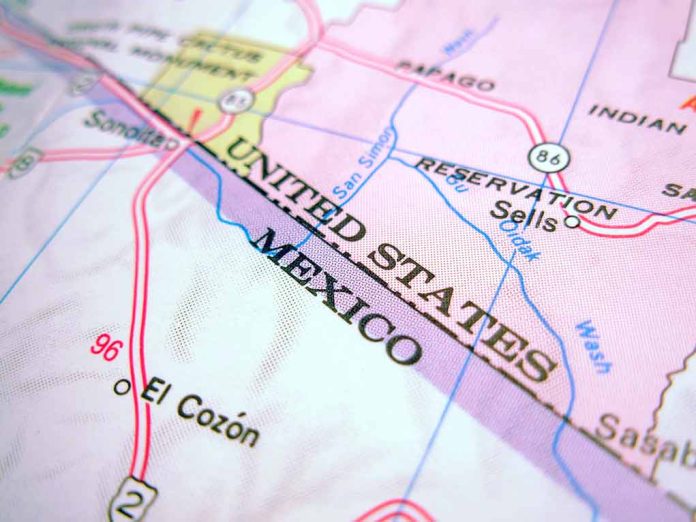
Donald Trump recently criticized Mexican President Claudia Sheinbaum for rejecting U.S. military intervention in Mexico’s fight against drug cartels.
Key Takeaways
- Trump accused Sheinbaum of fearing drug cartels after refusing U.S. troop intervention.
- Sheinbaum emphasized Mexico’s sovereignty and rejected foreign military presence.
- Trump increased U.S. military presence at the border to combat drug trafficking.
- Republicans advocate tough measures against cartels, including possible military actions.
Tensions Over Border Security and Sovereignty
Trump expressed frustration over Mexican President Claudia Sheinbaum’s rejection of his offer for U.S. military intervention against drug cartels. He described Sheinbaum as a “lovely woman” who was too afraid of cartel power to accept American defense aid. Trump’s proposal aimed at deploying U.S. troops to dismantle these criminal organizations, citing increased drug trafficking and fentanyl at the U.S.-Mexico border as urgent threats.
Sheinbaum, however, remained firm in her stance, emphasizing national sovereignty and the necessity of mutual respect between the nations. She declined the presence of foreign military forces, advocating for collaboration, intelligence-sharing, and respect for each country’s territorial rights.
Trump: "The president of Mexico is a lovely woman, but she is so afraid of the cartels that she can't even think straight." https://t.co/D1yt5TClRr
— NEWSMAX (@NEWSMAX) May 5, 2025
Negotiations and Diplomatic Stance
The situation highlights ongoing tensions in U.S.-Mexico relations concerning how best to address cartel violence and drug trafficking. U.S. Northern Command has amplified its surveillance efforts while requesting expanded authority for operations targeting cartels. Nevertheless, Mexico maintains that direct military actions within its borders infringes on its sovereignty.
“No, President Trump, our territory is inalienable, sovereignty is inalienable. We can collaborate. We can work together, but with you in your territory and us in ours. We can share information, but we will never accept the presence of the United States Army on our territory,” remarked Sheinbaum.
This diplomatic disagreement reflects broader issues of trust and cooperative security strategies. Trump, focused on national security and preventing illegal drug flow into the U.S., continues advocating for a tougher stance against Mexican drug cartels, a stance shared by many in the Republican party.
Trump Confirms Offer to Send U.S. Troops to Mexico to Help Fight Cartels
U.S. President Donald Trump has confirmed that he offered to send American troops to Mexico to assist in combating drug cartels, a proposal that Mexican President Claudia Sheinbaum publicly refused.… pic.twitter.com/2dyI9Dwa6L
— Why It Is Trending (@trendingblog247) May 5, 2025
Cartels and U.S. Pressure
With cartels labeled as “foreign terrorist organizations,” the U.S. intends to leverage stronger enforcement measures. Trump’s track record reveals a consistent desire to press Mexico on handling the illicit drug trade and its potential threat to American lives. He also imposed tariffs on Mexican imports earlier, hoping to push Mexico into taking more definitive action on these issues.
“They are bad news. If Mexico wanted help with the cartels, we would be honored to go in and do it. I told her that I would be honored to go in and do it. The cartels are trying to destroy our country. They’re evil,” stated Trump.
Tougher approaches against the cartels remain a central theme. Trump’s interactions with Sheinbaum showcase a sustained diplomatic challenge of balancing interventionist policies with respecting Mexico’s autonomy.





